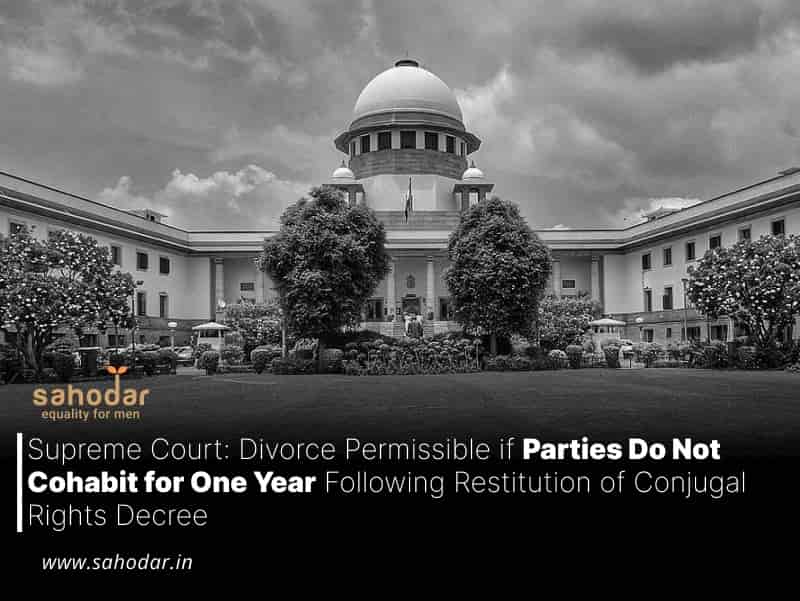On July 8, 2024, the Supreme Court ruled that a divorce petition can be filed on the grounds of desertion if there has been no restitution of conjugal rights between the spouses for a period of one year or more following the issuance of such a decree.
A bench comprising Justices Abhay S. Oka and Ujjal Bhuyan upheld a petition filed by a man challenging a high court order that had overturned a divorce decree granted on the basis of desertion.
“This is a case of a complete breakdown of marriage for the last 16 years and more,” the court noted.
The court also determined that the appellant’s desertion, which began at least as early as 2008 and persisted until the filing of the divorce petition in 2013, continued without any reasonable cause.
The court also determined that the appellant’s desertion, which began at least as early as 2008 and persisted until the filing of the divorce petition in 2013, continued without any reasonable cause.
“Therefore, a decree for divorce on the ground of desertion under Section 13(1)(ib) ought to have been passed. Thus, in our view, the High Court ought to have confirmed the decree of divorce on the ground of desertion,” the bench said.
The parties were married on March 25, 1999, and had two children, both now adults, as noted by the court.
Their matrimonial dispute resulted in multiple litigations, beginning with discord in 2006. This led the appellant to file a petition under Section 9 of the Hindu Marriage Act, 1955, for restitution of conjugal rights.
On December 17, 2008, the man filed his plea for restitution of conjugal rights.
On May 15, 2013, the Additional Civil Judge (Sr. Division), Barnala, issued a judgment and decree for restitution of conjugal rights, directing the respondent-wife to rejoin the appellant within three months.
When the respondent-wife failed to comply with this decree, the appellant filed a petition under Section 13 of the Hindu Marriage Act on August 23, 2013, seeking a divorce on the grounds of cruelty and desertion before the Family Court in Barnala.
The wife appealed to the High Court of Punjab and Haryana, but her appeal was dismissed on February 19, 2015, confirming the decree for restitution of conjugal rights.
On August 1, 2016, the Family Court judge in Barnala granted the appellant-husband’s divorce petition and dissolved the marriage.
The respondent-wife challenged this divorce decree, appealing to the Punjab and Haryana High Court, which set aside the decree on October 4, 2019.
The high court ruled that the ground of desertion was not proven, as the appellant had continuously neglected his duties as a husband, leaving the respondent with no choice but to leave and stay at her parental home.
However, the Supreme Court bench overturned this decision, stating, “In our view, it is not possible to sustain the judgment of the High Court on the issue of desertion.”
The court also found that the respondent-wife provided no evidence showing any attempt to resume cohabitation after February 19, 2015, when the High Court confirmed the decree for restitution of conjugal rights.
“We must note that between August 1, 2016, when a decree of divorce was passed, and October 4, 2019, when the decree was set aside, no efforts were made by the respondent to resume cohabitation. She had not made out any such case. Moreover, there is no material on record to show that after the decree of restitution of conjugal rights was passed, the respondent showed even an inclination to resume cohabitation with the appellant,” the bench said.
Referring to Section 13(1A)(ii) of the Hindu Marriage Act, the bench noted that a divorce petition can be filed if there has been no restitution of conjugal rights between the parties for a period of one year or more after the decree for restitution of conjugal rights has been passed.
The court further stated that the appellant has offered to pay the respondent-wife a lump sum alimony of Rs 30 lakhs, which is reasonable and acceptable. “Although we are granting a decree of divorce on the ground of desertion, it is necessary to clarify that this decree shall become effective only after the payment of Rs 30 lakhs to the respondent-wife,” the bench added.

